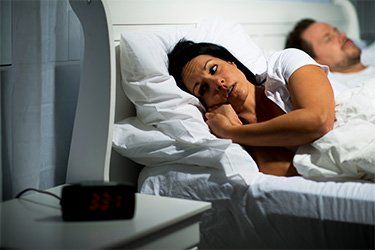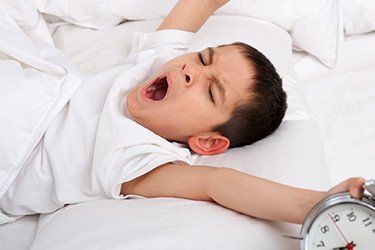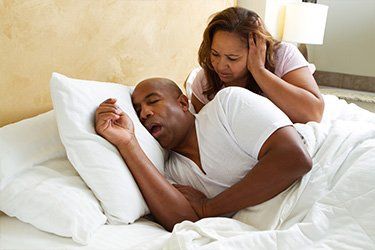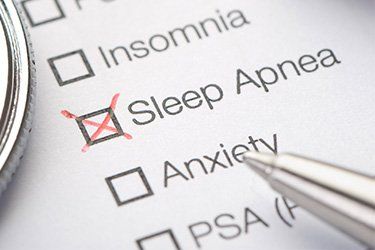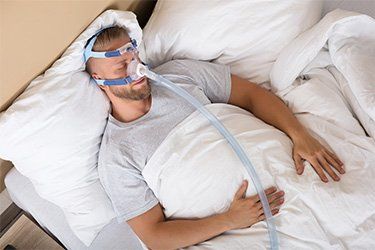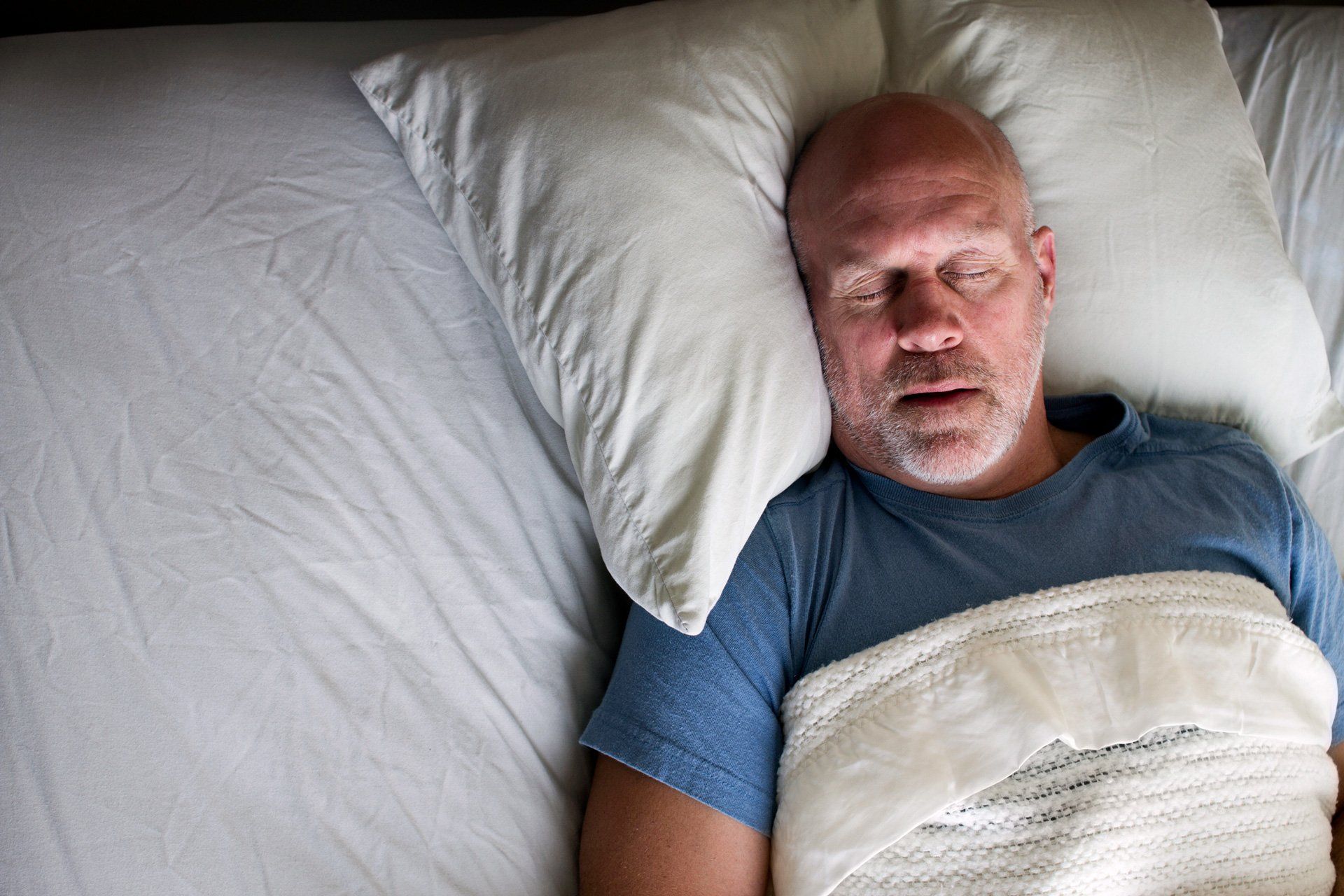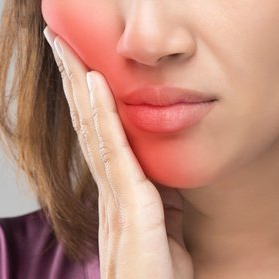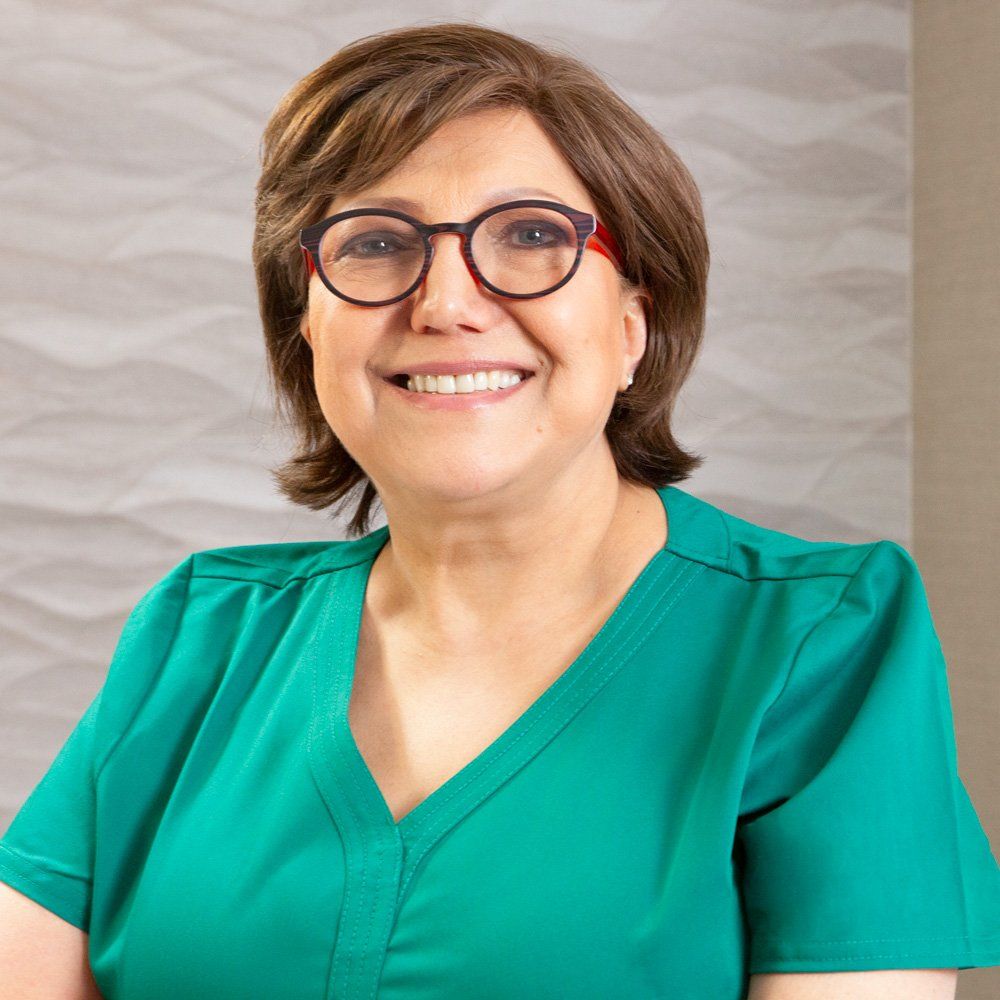Hypothyroidism and Sleep Apnea
There is extensive research associating low thyroid function with sleep apnea that cuts off one’s ability to breathe at night, disrupting sleep and damaging one’s health. When a person suffers from hypothyroid (low thyroid function), this problem can cause either obstructive sleep apnea or central sleep apnea. These two conditions differ in the reason the body has to struggle to breath every night.
Obstructive sleep apnea syndrome
results when the tongue, muscles and soft tissues in the back of the throat relax too much and obstruct the flow of oxygen. An overweight person has a greater chance of suffering from obstructive sleep apnea or OSA. This syndrome is also more common among mature adults and menopausal women.
Central sleep apnea
results when the brain fails to send the right messages to the body to properly control breathing. The person simply stops breathing repeatedly during the night.
Either of these sleep disorders can possibly be associated with hypothyroidism but obstructive sleep apnea is much more common. It’s only in rare cases that untreated hypothyroidism will interfere with the brain’s control of respiration, causing central sleep apnea.
How Can We Help You?
Thyroid Disease and Its Association with Sleep Apnea Syndrome
When a person suffers from thyroid dysfunction, this large gland in the throat area is not producing enough hormones to regulate body functions. Proper thyroid hormone levels are vital for all the following functions:
- Metabolic rate control
- Growth and development
- Muscle function
- Digestion
- Bone maintenance
- Proper heart function
Symptoms commonly suffered by hypothyroid patients:
- Sensitivity to cold
- Thinning hair
- Fatigue
- Weight gain
- Brittle nails
- Joint and muscle pain
- Weight gain
- Irritability
- Irregular menstrual periods
- Slow heart rate
- Difficulty falling asleep
Symptoms of hypothyroidism can develop slowly and could be chalked up to stress. As noted earlier, people suffering from an underactive thyroid (hypothyroidism) frequently also suffer from obstructive sleep apnea. In some cases, it appears that sleep apnea is actually the causative factor in hypothyroidism because of the low-grade, continuous inflammation that results from a failure to get enough oxygen during sleep. Treating this problem may involve prescribing thyroid hormone replacement. While this will occasionally resolve obstructive sleep apnea syndrome associated with hypothyroidism, it is more often necessary to take further steps.
Quality of Sleep, Hypothyroidism and Sleep Apnea
Hypothyroidism can affect the quality of a person’s sleep and this disrupted sleep then has adverse effects on all aspects of a person’s health. Hypothyroidism is associated with shallow breathing, anxiety and night sweats. A person who breathes shallowly is also more likely to have throat muscles that relax too much—a contributing factor to obstructive sleep apnea. Hypothyroidism can even cause swelling in a person’s tongue or narrowing of the upper airway, both of which can also contribute significantly to obstructive sleep apnea.
When both hypothyroidism and sleep apnea exist, it’s vital to get the right tests to identify or rule out hypothyroidism as a factor in obstructive sleep apnea before beginning other treatment.
It is possible to suffer from hypothyroidism and not know it. When symptoms are mild, the condition may be referred to as subclinical hypothyroidism. This term is used when one thyroid hormone level is normal but another hormone that helps control the thyroid gland’s production is elevated.
The Dangerous Effects of Sleep Apnea
Whenever a person suffers from sleep apnea, they stop breathing multiple times during their sleep. With a gasp and snort, they partially rouse from their sleep and suck in as much oxygen as they can. With severe sleep apnea, this disruption can occur a hundred or more times a night. If oxygen can’t be drawn in normally at night, blood oxygen levels drop and this stresses every system in the body, creating inflammation and eventually, illness.
A person may first realize that they suffer from obstructive sleep apnea syndrome by observing these signs:
- Excessive daytime sleepiness
- Difficulty concentrating during the day
- Morning headache
- Waking up with a dry mouth
A sleeping partner may report that they are snoring loudly, partially waking up or struggling for air at night. The person suffering from sleep apnea may also experience depression, irritability, apathy and lethargy. Because these can also be signs of hypothyroidism, it is necessary to get the right medical tests done to zero in on the correct cause. The right thyroid function tests can focus treatment in the best direction.
Sleep Apnea’s Serious Effects on Health
Sleep apnea can have severe effects on a person’s health, including increasing the risk of the following problems:
- High blood pressure
- Decreased libido
- Arrhythmias
- Weakened immunity
- Glaucoma
- Coronary artery disease, heart attacks, strokes, heart failure
- Dementia
- Diabetes
Treating Sleep Apnea
The first step in treating sleep apnea is, of course, ruling out any complicating factors that need separate treatment such as hypothyroidism. If hypothyroidism exists, once it has been identified and treated, an appropriate course of treatment can then be begun for OSA. Studies have determined that 10% to 25% of those suffering from hypothyroidism also have obstructive sleep apnea, so it is important to follow the correct sequence in diagnosis and treatment.
Many doctors recommend use of a continuous positive airway pressure machine (CPAP) for those suffering from obstructive sleep apnea syndrome. This device is a quiet bedside pump connected to a face mask. When worn during sleep, it directs a continuous flow of air pressure into the breathing passages. This pressure helps keep the airways open during sleep.
There are also mouth appliances that shift the position of the lower jaw and the tongue forward so the airway stays open.
The problem with these solutions is that they must be used indefinitely, every night. They do not resolve the problem, they only alleviate the symptoms. Plus toting around a CPAP machine makes travel difficult. A better way to deal with obstructive sleep apnea syndrome is addressing the physical problem at its foundation.
Breath of Life Dental Offers the Vivos Oral Appliances
Correcting sleep apnea allows the body to obtain normal levels of healing oxygen all night long. Breath of Life Dental treats obstructive sleep apnea using the remarkable Vivos Biomimetic Oral Appliance. The Vivos appliance has the effect of reshaping the bones of the mouth and face which opens a patient’s airway. An open airway means ample oxygen can be obtained all night long, which helps balance and normalize the entire endocrine system.
Treatment progresses through the following steps:
- First, there is a careful examination of a patient’s mouth, jaws and airway.
- A detailed scan of this area may reveal a narrowing of the airway that, during the night, can interfere with breathing.
- The patient will be carefully asked about any symptoms that could indicate that they suffer from obstructive sleep apnea (OSA) or central sleep apnea.
- When OSA has been diagnosed, a custom-designed appliance for the upper jaw will be manufactured. In some cases, it will be followed by an appliance for the lower jaw. Each appliance can be expanded at home by the patient.
- By wearing these appliances all night and for part of the day, patients experience a very gradual widening of the upper and lower jaws. There is more room for the tongue which otherwise would fall to the back of the throat. The airway stays open and OSA is resolved.
But with this treatment plan, there is an end to treatment! When the bones have expanded into their optimal shapes, treatment is complete. Patients do not need the continuing support of a CPAP machine or a nighttime appliance that shifts their lower jaws.
Benefits of the Vivos System
Finally, a person can breathe at night, without reliance on machines or appliances. They no longer have to suffer from these problems:
- Reduced nighttime oxygen
- Morning headaches
- Snoring
- Exhaustion
- Stiff necks
- Increased risk of obesity, heart disease and more
This treatment even helps those predisposed to sleep apnea who do not yet have symptoms.
The Vivos system can also correct problems with the TMJ—the temporomandibular joint right near the ear. When this joint is misaligned or damaged, a person may suffer from difficulty when chewing, clicking or popping when moving the jaw, or face, jaw or neck pain. Better alignment of the lower jaw by expanding the bones of the jaw and face can relieve these problems as well.
Learn More about the Vivos System
Breath of Life Dental wants to educate its community on the solutions available from the Vivos System. An educational seminar is available at no cost. Find out if your sleep problems may be caused by sleep apnea and how the Vivos System can put an end to them for good. If you are currently relying on a continuous positive airway pressure device, you may be able to end your reliance on a machine. Or you can finally get rid of a mouth appliance that holds your lower jaw forward.
If both hypothyroidism and sleep apnea are involved in your sleep problems, we will help you navigate the resolution of these problems so you can get restful sleep every night. Dr. Maryam Seifi has extensive training and years of experience helping patients overcome obstructive sleep apnea syndrome. Finally, her patients enjoy restful sleep and free, open breathing all night that helps them live less stressed, healthier lives.
Please contact us if you feel you may suffer from sleep apnea syndrome, whether you have also been diagnosed with thyroid dysfunction or not. We are ready to serve the North Bethesda community with our high standard of care.
Attend Our Educational Seminar or Request a Consultation
Reserve a seat at the next educational seminar or request a personal consultation with Dr. Maryam Seifi.
Call (301) 281-4725, email info@breathoflifeteam.com or submit an online request for either one. We look forward to helping you breathe easy and sleep quietly!
Disclaimer: The information contained on this website is not intended to be a substitute for professional medical advice, diagnosis, or treatment of a medical issue. Breath of Life Dental encourages you to seek the advice of your physician or you may call our office with any questions you may have regarding TMD or sleep apnea. Everything contained on this website is presented for informational purposes only. While there are many commonalities among multiple TMD and sleep apnea cases, each patient is unique. Information on this website is strictly for educating the reader about what they should discuss with their doctor if they are suffering from the listed symptoms. If you think you may have a medical emergency, call your doctor or 911 immediately.
301-719-3123
Breath Of Life Dental is registered as a Trade Mark Privacy Policy | Cookie Policy | Accessibility Statement | Notice of Privacy Practices | Terms and Conditions
All Rights Reserved | Breath of Life Dental, an office of Dr. Maryam Seifi
Website designed and maintained by Xpress, INC

